The Maldives is a picture-perfect archipelago, situated in the middle of the Indian Ocean, and home to 1,190+ tiny coral islands. The country is famous for the beauty it carries and is celebrated as one of the best travel destinations in the world. The Maldives hosted a British airbase on the island of Gan in Addu atoll between 1957 and 1967 and was under the protectorate of the British. However, Maldives signed an independence agreement with the British on July 26, 1965, after 77 years as a British protectorate. It was signed by former Prime Minister Ibrahim Nasir.
The trigger for independence came when the British in 1963 transported Abdulla Afeef, the leader of the breakaway republic, to Seychelles without the government’s knowledge. former Prime Minister Ibrahim Nasir upon hearing of the departure of Abdullah Afeef, Prime Minister had a meeting with Humphrey Arthington-Davy, the British representative in the Maldives, Nasir raised the question as to how the British could take a Maldivian citizen without the knowledge of the government? However, Davy had rudely commented that anyone under the British protectorate can be taken anywhere. That’s when Nasir stated that, “in that case, we don’t want protectorate status any longer.”
The influencers
The most competitive countries for the Maldives have been India, China, and the US.
India was dealt a stunning blow recently with Maldives entering into a Free Trade Agreement (FTA) with China. The FTA, which was signed on December 8, 2017, during the former President Abdulla Yameen’s four-day visit to Beijing, Maldives has become the second South Asian country after Pakistan to sign an FTA with China. China and the Maldives first established diplomatic relations in 1972. Since then, relations have gradually developed. However, China's expanding footprint in the Maldives has unsettled neighboring India.
The China-Maldives Friendship Bridge, built with $200 million largely funded by Beijing, is among a growing list of Chinese projects. As an attempt to counter growing Chinese influence, India announced in August a $500 million package for its own bridge. The 6.7-kilometre (4.1-mile) bridge and causeway will link Malé with three nearby islands, overshadowing the Chinese bridge in length, scale, and price.
Chinese infrastructure projects like the bridge, however, have also left behind a mountain of debt. After President Ibrahim Mohamed Solih took office in November 2018, his government had a hard time figuring out how much the Maldives owed China. Its central bank governor believed the government directly owed $600 million to Beijing.
Bilateral relation between India and Maldives goes back several centuries. India played a critical role in building Maldives' economy and ensuring political stability. India supported former President Maumoon Abdul Gayoom and enabled him to stay in power for three decades, India also helped avert a coup attempt to oust former President Gayoom in the year 1988.
India’s influence over the Maldives began fraying after former President Mohamed Nasheed, who was perceived as India-friendly, was forced to resign in February 2012. An agreement signed by India’s GMR Infrastructure under Nasheed’s tenure for upgrading Male airport was abruptly terminated by his successor in November 2012. The contract was awarded to a state-owned Chinese company.
India has sought to regain diplomatic influence in the islands after President Ibrahim Solih took office following the defeat of former president Abdulla Yameen in elections in 2018.
Interestingly, in September 2020, the US and Maldives signed a Defence Pact- “Framework for US Department of Defence – Maldives Ministry of Defence and Security Relationship “, when the Maldivian Defence Minister, Mariya Didi, visited the US.
What does this pact mean?
This pact conveys that the Maldives intends to showcase their stature and position in both the Indian Ocean Region and in the realm of the Indo-Pacific. It also conveys that the US has started paying attention to the Indian Ocean region. The Maldives on the other hand, with a new Government since late 2018 under President Solih has been proactive in reaching out to significant powers especially to India in recent times and now the US, showcasing that the Chinese expansionist agenda is not just a regional worry but a global worry as well.
#IndiaOut and #ChinaIn. Why?
The Twitter hashtags #Indiaout and #SaveAddu have now become common on social media feeds as the country took to the platforms to voice its rage over the idea of an Indian consulate in Addu. India's high crime rate had also been highlighted as a potential red flag with the public concerned that crimes like rape, murder, and corruption might increase in Addu City once India opens its diplomatic post in the city. Some Maldivians are just adamantly rejecting the idea of more Indian soldiers on Maldivian soil for the sake of safeguarding Indian diplomatic interests.
While India working on gaining more power over the Maldives, China is willing to consolidate and develop the future-oriented China-Maldives comprehensive friendly and cooperative relationship based on mutual respect, equality and mutual benefit. The Chinese side supports the Maldives in maintaining independence, sovereignty and territorial integrity, and in exploring a development path suited to the national conditions of the Maldives.
What Next?
Maldives should accept that India and China’s approach as friendly countries in areas of development and infrastructure. When the two major powers are competing to gain power over the Maldives, the adminitsration should play fair on all sides. For the Maldives, alienating either power is not an option as its economy is still recuperating from the pandemic. India’s financial aid and humanitarian assistance are an important support while Chinese and other counter parts assistance go a long way to restore ties for Maldives.

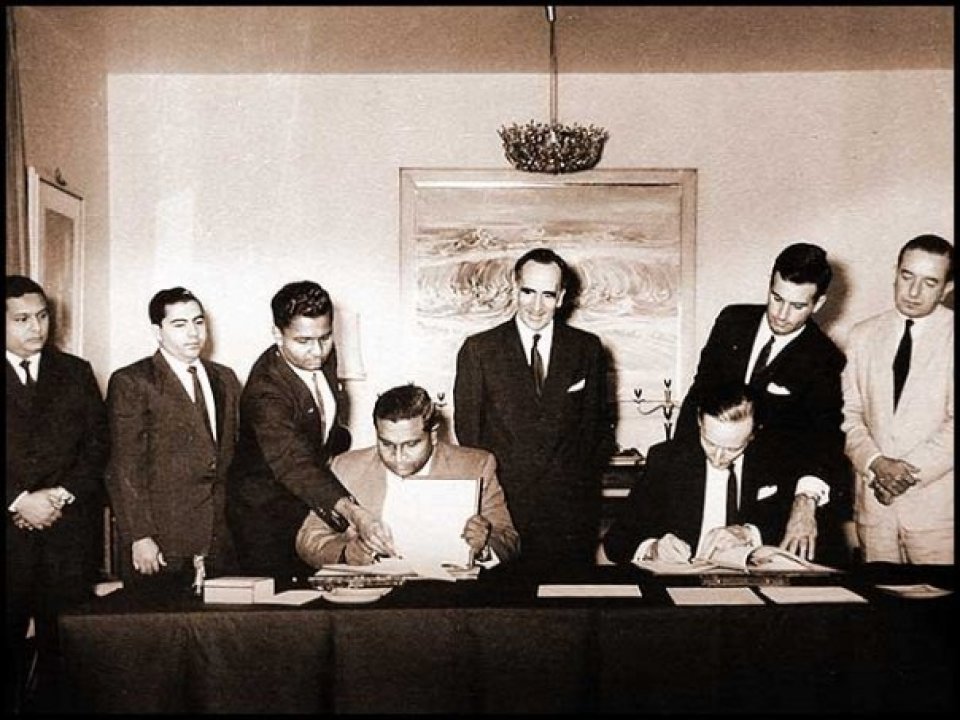





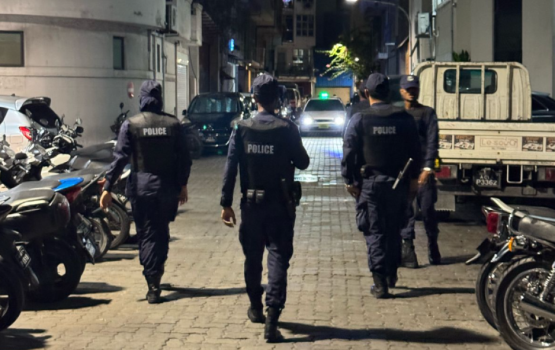
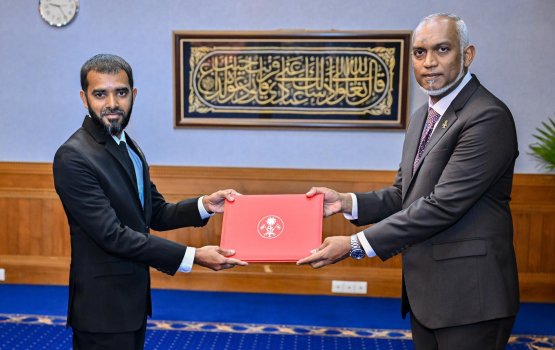
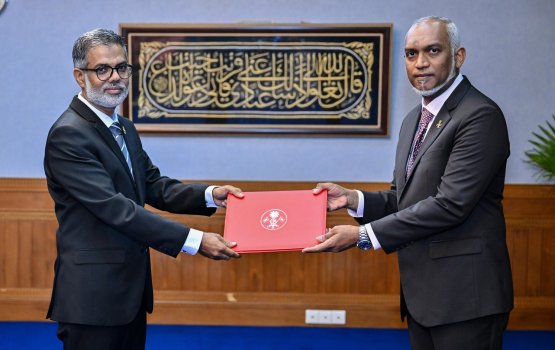
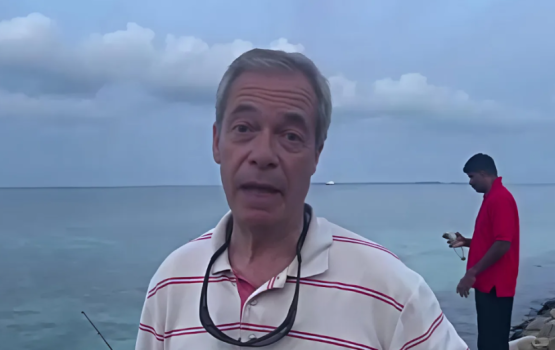
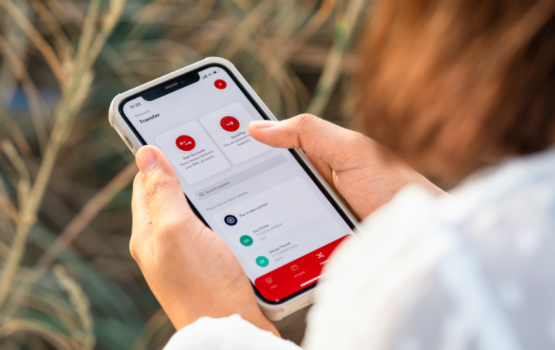
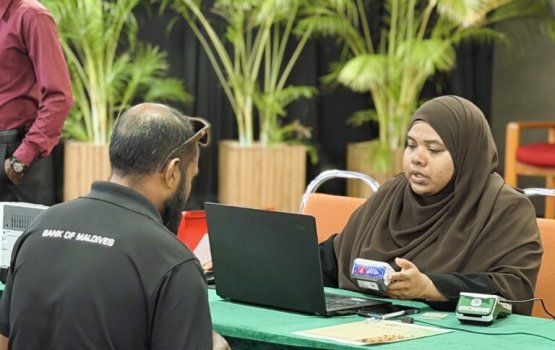
Loved how the article gave a brief of the history. It was written interestingly. Almost everything was unbiased except one part. I felt like the hashtag part, the second paragraph felt a bit biased. Even though that's the case the last part of the article made it unbiased and a clear message was delivered. I would love to see more of these kinds of articles showing both sides of the story. Good writing ????????.